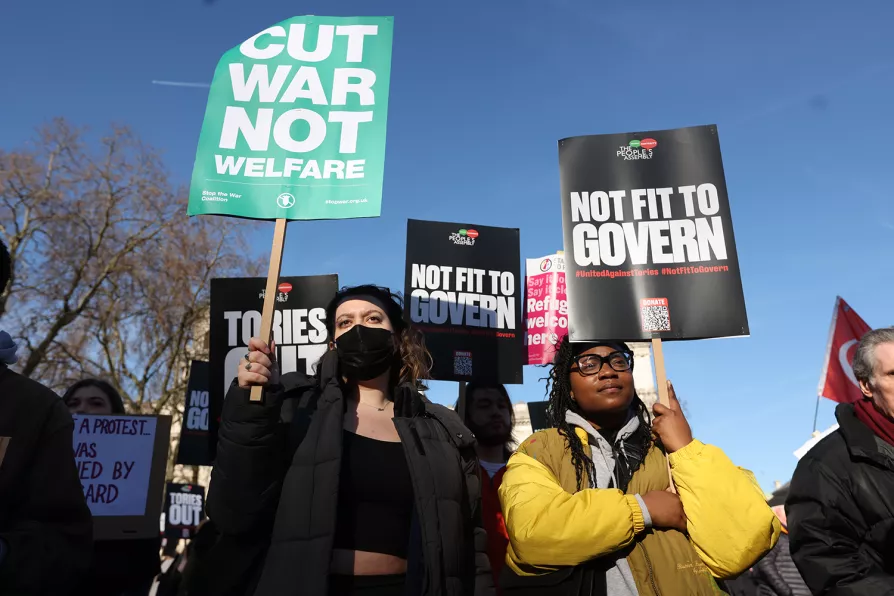Speakers in Berlin traced how Germany’s rearmament, US-led violence abroad and the repression of solidarity at home are converging in a dangerous drive toward war. BEN CHACKO reports

 URGENCY: People in Parliament Square, London, take part in the People’s Assembly nationwide protest about cost of living crisis, February, 2022
URGENCY: People in Parliament Square, London, take part in the People’s Assembly nationwide protest about cost of living crisis, February, 2022
THE “cost-of-living crisis,” which is actually a crisis of capitalism, is getting worse by the day. The Morning Star recently reported that “workers are living in a nightmare.”
Inflation is running at over 10 per cent, with many basic food items rising by much more and energy bills expected to exceed £5,000 by the new year.
Yet the wages and benefits of working-class people have fallen in real terms and as many as four out of 10 households are expected to be unable to pay their bills as the year goes on.

Working-class women lead the fight for fair work and equitable pay and against sexual harassment, the rise of the far right and years of failed austerity policies, writes ROZ FOYER

ROS SITWELL reports from the Morning Star conference on ‘Race, Sex and Class Liberation’ last weekend












